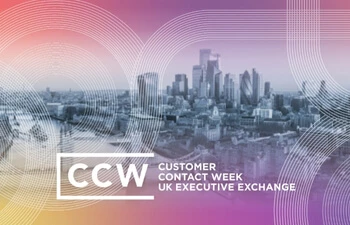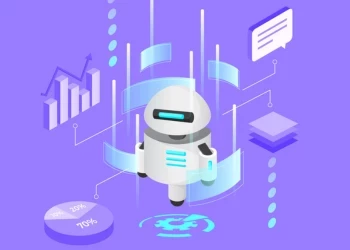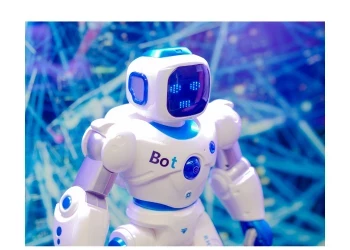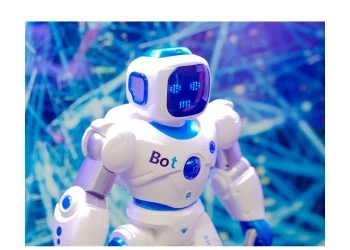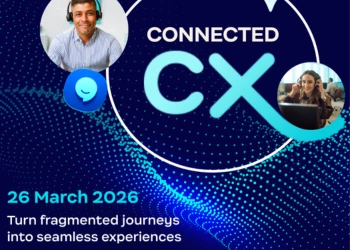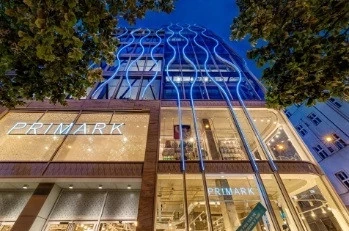Evolving The Honest Company from eCommerce to retail
Add bookmarkIn this week’s CX Network podcast interview, the SVP of The Honest Company explains he is the ‘how person’ to founder Jessica Alba being the ‘why person’.
EPISODE OVERVIEW:
Bill Ashton is the SVP Operations at The Honest Company. He joins host Seth Adler in CX Network’s Podcast Theatre today for an in-depth conversation in which he shares that the company’s founder, actress Jessica Alba, in fact does come into the office every day. He explains that she is the ‘why’ person. He on the other hand is the ‘how' person.
Retail customer experience
The Honest Company had been growing quickly in e-commerce getting the brand into Target after three years. About six months later Ashton joined the team. He earned logistics in the military and worked for Federated in the hay day of department stores, eventually moving to Ralph Lauren and experiencing the growth of the brand over the course of the ensuing 15 years.
He takes us through how Ralph Lauren the person actually executed on the vision of producing timeless quality, while delivering on premium customer service. After stops at Restoration Hardware and Bare Essentials, Ashton continues to do just that at The Honest Co.
"I can get stuff done, but I look for someone, the visionary, to provide the direction and tell us why we're doing this."
LISTEN NOW:
TRANSCRIPT:
Seth Adler: From the Honest Company, Bill Ashton. First some supporters to thank, and thank you for listening.
Bill Ashton: This episode is supported CX Network. CX Network provides expert commentary, tools, and resources developed by customer service professionals, and industry insiders. With a growing membership and global portfolio of events, CX Network ensures you keep your finger on the pulse, by delivering practical and strategic advice to help achieve your business goals.
Wherever you are on your customer strategy journey, join the CX Network's global community today. Go to www.cxnetwork.com for more.
This episode is also supported by the Chief Customer Officer Exchange. CCOE discusses approaches on driving a profitable customer strategy at all levels of the enterprise. Join the only event focused on bringing together innovative, cross industry Chief Customer Officers November 5th through the 7th in Miami, Florida.
Benchmark on improving customer experience, establishing customer centric strategies, and producing more valuable customer insights, go to CCOexchange.iqpc.com for more.
Seth Adler: Bill Ashton joins us and lets us know that Jessica Alba in fact does come in to the office every day. He explains that she is the why person, he, on the other hand, is the how person. The Honest Company had been growing quickly in e-commerce, getting the brand in to Target after three years. About six months later, Bill joined the team. He truly learned logistics in the military. He worked for Federated in the heyday of the department store, eventually moving to Ralph Lauren and experiencing the growth of that brand in the course of the ensuing 15 years.
He takes us through how Ralph Lauren, the person, actually executed on the vision of producing timeless quality, while delivering on premium customer service. After stops at Restoration Hardware and Bare Essentials, Bill continues to do just that at The Honest Company.
Welcome to CX Network on B2BIQ, I'm your host Seth Adler. Download episodes on cxnetwork.com, or through our app in iTunes, within the iTunes podcast app in Google Play, or wherever you currently get your podcasts.
Bill Ashton.
Bill Ashton: Well you know, I think the big surprise with Jessica is the fact that she's in our office every day. She comes to work.
Seth Adler: She does?
Bill Ashton: She's not just the celebrity spokesperson for The Honest Company. She comes to the office, she's in our meetings all day long, she's-
Seth Adler: She's working.
Bill Ashton: She's working, making decisions. She's our why person. She's-
Seth Adler: What does that mean?
Bill Ashton: Well, she tells us why we're there. Why we do what we do. I tend to be the how person.
Seth Adler: Sure.
Bill Ashton: I can get stuff done, but I look for someone, the visionary, to provide the direction and tell us why we're doing this.
Seth Adler: Yeah, so-
Bill Ashton: She does that.
Seth Adler: We've all kind of read up on the company, I'm sure. What is the why that she gives? In other words, what's the mission and how does it stay relevant every day?
Bill Ashton: Well, she had two young daughters, like four and two. And just tons of problems with skin rashes, they were in diapers at some point, and she said, "You know, I'm on a mission to create some products that are just safe for families." And that's what she wanted to do, that was the why. To create products that are safe for families. And she did a great job with that. And as soon as ... she started with diapers and wipes, and they're organic, they're made the right way, there's no artificial ingredients, or bleaching, or anything else that goes on.
So, next thing you know, our customers were starting to sing praises of Honest diapers. Kids had rashes, and all of the sudden, the rashes started going away and it was ... So it just fed on itself, and she expanded the line in to other products. Like shampoo, and personal care, and then cleaning, and baby formula, and on and on. But, yeah, she's all about I want to create safe products, to make families safe. And especially focused on kids. So it's a wonderful mission.
Seth Adler: There you go.
Bill Ashton: Yeah.
Seth Adler: Sounds honest.
Bill Ashton: Mm-hmm (affirmative). We're very honest, absolutely.
Seth Adler: All right, so where does how come in? How long was she going before she brought in Bill?
Bill Ashton: Well, it was about three and a half years, and the company had really grown fast. And of course, it started out as just direct, e-commerce only. And so about three years in, they decided to start expanding in to retail. So, the first retail expansion was in Target. And of course, that's a big step.
And-
Seth Adler: That's a big first step, certainly.
Bill Ashton: It's a big first step. And retail can be pretty complicated. It's not nearly as ... well, e-commerce is not necessarily easy, but it's a lot easier than retail in many respects.
So-
Seth Adler: Well there are rule sets that are both spoken and unspoken in retail.
Bill Ashton: Exactly. Well, a lot of it tends to be pretty traditional. It's not like the digital world, in many cases, with some of the old time retailers, so ... But, she came to a point where she realized, hey, we need some experience. Because it was a millennial crowd. Probably the oldest person at the company was maybe 30, young 30s. So anyway, she reached a point where and said, hey, I think we need to bring on some experience and of course, I've been doing this ... matter of fact, way too long.
But so anyway, we connected and so I joined the company a couple years ago and-
Seth Adler: How did you connect? How did that machination-
Bill Ashton: Well, she and our CFO knew a former CEO that I'd worked with. And I was living in LA at the time, and they reached out to him and said, hey, we're looking for someone with experience in CPG, that's done this, and knows operations. So he said, hey, talk to Ashton. So one thing led to another and, yeah.
Seth Adler: And here we are.
Bill Ashton: Yeah.
Seth Adler: All right, so then now let's go back. Where are you from?
Bill Ashton: Well I'm a Midwest guy, so I'm originally from Columbus, Ohio.
Seth Adler: Okay.
Bill Ashton: Which being in logistics and being from Columbus is a good thing.
Seth Adler: Yeah.
Bill Ashton: Because that's one of our major distribution hubs in the country. But-
Seth Adler: Were your folks in logistics or in moving product of any kind?
Bill Ashton: Well, I guess my dad was in logistics, he was a cattle farmer. So, I guess-
Seth Adler: Kind of.
Bill Ashton: In many respects.
Seth Adler: He's at the beginning of the supply chain, right?
Bill Ashton: There you go, yeah. Yeah, I grew up on a cattle farm in Ohio and after college I went off to the military for a number of years, and that's kind of-
Seth Adler: Thank you for service.
Bill Ashton: Where I started in logistics.
Seth Adler: I need to interrupt you to thank you for your service.
Bill Ashton: Oh, well, yeah. Yeah, you're welcome.
Seth Adler: All right. Did you anywhere that we might have heard of, or ...
Bill Ashton: No, actually, I lived kind of a blessed life, I became a Marine helicopter pilot, so I spent six years enjoying that endeavor, but I was in between wars, so it was-
Seth Adler: Okay. That's what we're asking.
Bill Ashton: Yeah, a good thing for me, so ...
Seth Adler: A Marine helicopter, those are the big ones, right?
Bill Ashton: Well, I was flying one of the smaller ones-
Seth Adler: Okay.
Bill Ashton: It was like an attack helicopter, but it was fun. Very exciting, it's kind of like driving a Corvette. So it was fun.
Seth Adler: Did you ever see the show Air Wolf?
Bill Ashton: Yeah, of course.
Seth Adler: Yeah.
Bill Ashton: Yeah, it was similar to that kind of thing.
Seth Adler: There you go.
Bill Ashton: A little more realistic than that, but yeah.
Seth Adler: All right, so military, how did you find your way in to the military? Why did we discover that?
Bill Ashton: I was a science major, I had an undergraduate in biochemistry, and I was getting close to graduation time, and it's like, you know, I don't think I want to be a biochemist. So, I had some fraternity brothers who had joined the Marine Corps a couple years ago, and they came back, and they were flying Phantoms and fighters and I said man, that sounds like neat stuff to do.
So I signed up, and the day after I graduated college I headed off to Quantico to start training, and spent two years going through all the training to become a Naval aviator, and yeah, it was good.
Seth Adler: All right, and then so you land the helicopter for the last time. And you're done with it.
Bill Ashton: Yes.
Seth Adler: Was it just okay, that was cool, but not anymore type of thing?
Bill Ashton: Well, actually, after I ... I was on active for six years, then I actually stayed in the Reserves for another 20 years.
Seth Adler: Oh, you did? For 20 years?
Bill Ashton: Yeah, so I'm actually retired military. But during my 20 years, then I started my civilian career. And I got a little bit of logistics background while in the military, so it just made sense to go on with that in my civilian life.
Seth Adler: You know the name Gus Pagonis? He was the head of logistics for Desert Storm.
Bill Ashton: Oh.
Seth Adler: And went in to Sears, and he was like a rock star for a long time. I'm sure many folks listening know the name. But where did you kind of land as far as logistics in your civilian career?
Bill Ashton: Well I started out with Federated department stores.
Seth Adler: Oh, sure. That's Ohio.
Bill Ashton: Yeah, it's Ohio. The Lazarus family started Federated and so yeah, I actually worked for Federated for about four or five years. It was a great training ground, great experience, and that was the heyday of department stores, that's back when department stores were king.
And then I joined Ralph Lauren and I was at Ralph Lauren for 15 years. And that was a wonderful period, because I joined Ralph Lauren when it was very small. Got to ride that, and it was about building supply chain solutions to support the business. And opening distribution centers, and setting up retail channels. So yeah, that was a real enjoyable thing.
Seth Adler: I remember that company becoming huge, it was-
Bill Ashton: Yes.
Seth Adler: A brand and then it was kind of a monster. My first question is, what was Ralph like to work for?
Bill Ashton: Well, you know, it's funny, Ralph's not a big operations guy-
Seth Adler: Right.
Bill Ashton: So I was in a few meetings with him, but yeah, he didn't come out and hang out with us operations guys at the distribution center. Yeah, he's-
Seth Adler: He's more brand, he's more design.
Bill Ashton: He's totally brand. And to him, it's lifestyle.
Seth Adler: Right.
Bill Ashton: Everything was about a lifestyle. And I used to joke, he would send out catalogs, and a lot of the products in his catalogs we didn't even sell.
Seth Adler: Right.
Bill Ashton: It was about showing a lifestyle.
Seth Adler: Right.
Bill Ashton: And people would ask, hey, I want to buy that, and say, well, we don't sell that.
Seth Adler: We don't actually sell the canoe.
Bill Ashton: Right, exactly. Exactly. So yeah, that was ... but yeah, he was a master. Started back in the 60s and to this day, it's still a brand that's very strong and he always said he wants to produce timeless quality, and that's really what he did.
Seth Adler: As far as logistics, and building that distribution system in the warehouses and whathaveyou, how much did that echo the brand, the mission, his vision? And how much of it was just okay, we've got to set up how?
Bill Ashton: It was very interesting. We operations people tend to focus on efficiency. It's kind of our left brain tells us that's what you've got to do. Well, fortunately for me, I kind of grew up in the Ralph Lauren. And I learned that it's always about service first. He wanted to have an incredible customer service ... high service model. So, we had to ... we obviously needed to be efficient, but it was be as efficient as you can, yet still provide that premium level of service.
And for a logistics guy, that was like kind of a wake up call. It's kind of like okay, that's a little contrary to shipping jet engines between different parts of the world. So yeah, it was a change for me. And of course I was there 15 years, so it really sunk in after that 15 years. And that was an important thing I needed to learn.
Seth Adler: Yeah, either directly or indirectly, as far as that relationship with the customer, no matter who you are in the company, you have to have it.
Bill Ashton: Yes.
Seth Adler: How did you kind of come away from that?
Bill Ashton: Oh yeah, no, it was really all about customer service. I would get calls directly from customers. I got a call from a lady once, she was living in England, and she was planning to fly to Bermuda to get married and she wanted a wedding gown. And we rushed, we got the wedding gown and it had to be shipped to the right place to get her at the right time. It was just ... the amount of the work that we did to make sure that this woman got her wedding gown, in Bermuda, on the day that she was supposed to get married. I mean, nothing could go wrong there. And it did.
And then there was a time that President Ford, someone from his office called and said, we have a state dinner coming up and we need this China set. And we need it here on this day and it's like you can't get that wrong.
Seth Adler: Yeah.
Bill Ashton: So we got an army of people together, we packed it, we made sure it wouldn't break, and we made sure it got delivered at the right time, at the right place. So ... and of course, Oprah Winfrey, she needed furniture for one of her shows in Chicago. She needed it in 12 hours. So we'd scramble out and find ways to get it delivered at the right time.
So it taught me that there's a level of customer service that ... especially for a company that the customer is so important.
Seth Adler: And what I'm taking away from that, you mentioned Oprah, and this, to me, random woman.
Bill Ashton: Yes.
Seth Adler: Who is getting married, you mentioned them in the same breath as though they are as important as each other.
Bill Ashton: Oh, absolutely. Yeah, no question. Yeah, in fact, I mentioned the woman, to this day ... I knew her name at the time, I don't know her name, but just that she was so thankful when her dress actually showed up.
Seth Adler: Sure.
Bill Ashton: Because I mean, that was the most important day of her life, probably. And she desperately wanted this Ralph Lauren gown. And yeah, so stories like that really ... you experience a few of those, and it really kind of changes your mindset. And again, I'm an efficiency guy, that's what I do. I build things.
Seth Adler: Yeah.
Bill Ashton: Build solutions. But you've got to really always have the customer in mind, first and foremost.
Seth Adler: And that's how brands have relationships with customers.
Bill Ashton: Yes, totally.
Seth Adler: Right there. All right, so you were with Ralph for a while, right?
Bill Ashton: Yes, a number of years, sure.
Seth Adler: And then where did we go?
Bill Ashton: Then I went to Restoration Hardware.
Seth Adler: Which is also, I mean now-
Bill Ashton: Yeah.
Seth Adler: As far as luxury is concerned, as far as ... I've got to spend a coin or two if I go in to Restoration Hardware, right?
Bill Ashton: Absolutely, yeah. And I joined Restoration when it was tiny, we were literally all in one room there in Corte Madera, California. And with the founder, and a few of us. But, yeah, we launched it and grew the brand. I was there about five years, but went through the whole growth cycle, building supply chain solutions. But there, again, it was like customer first. We'd do whatever it would take to get a piece of furniture delivered to a customer, it doesn't matter where you live, we've got to figure out how to get it there, make sure it's right. We check in with them. Everything had to flawless. It wasn't always flawless, but we had backup plans to-
Seth Adler: Right.
Bill Ashton: To make the customer experience.
Seth Adler: The ends clearly justifying the means. It does just ... speaking of brand, I feel like, as a consumer, Restoration Hardware got more and more luxury as we went. Is that true, or-
Bill Ashton: Oh, yes, that's interesting that you picked up on that because a lot of people that know the brand ... they had to have known it back then-
Seth Adler: Sure.
Bill Ashton: To know now is considerably different. Yeah when Gary Freedman, who was the head of Pottery Barn, he came over to-
Seth Adler: That makes sense.
Bill Ashton: To Restoration Hardware, and he did, he wanted to move the brand up a notch or two, and he knew it was a smaller demographic that we were targeting, but he was very successful at it. So yeah, I applaud him for ... he was a visionary. Truly a visionary. Yeah. And again, he was the why guy. He knew nothing about getting anything done and he really didn't care that he knew how to get it done, because he hired people like me to get the work done.
Seth Adler: That's it.
Bill Ashton: Yup.
Seth Adler: That's essentially what Banana Republic brand did, as well. It started out as something-
Bill Ashton: Yes.
Seth Adler: And then became something very different.
Bill Ashton: Exactly.
Seth Adler: All right, so you've got this nice line of really visionary CEOs. Was there another one in between, or ...
Bill Ashton: Well and then the next one was Bare Essentials. Bare Minerals, the women's cosmetic line. And their founder was Leslie Blodgett. And she was ... oh man, she was another visionary. And it was all about connecting with women. She called it the girlfriend approach. She wanted all the women in the world to be her best friend. And it was when social media was just becoming popular-
Seth Adler: Just starting, right.
Bill Ashton: Yeah, and man, she maximized the use of social media to spread the word. And she had just obsessed customers that ... I would travel sometimes with her, and we'd go to an event, and there could be 800 women lined up outside just to see her. And some of them, when they saw her, they'd break down crying. Because her product, it was the first mineral makeup. It was healthy for your skin. And there are so many women that have problem skin. And man, they used our product and it was like wow, it changed their lives.
Seth Adler: Yeah.
Bill Ashton: And to hear those stories, you think, oh, wait a minute, it didn't change your life. But, no, you listen to them and it did change their lives, so-
Seth Adler: There you go.
Bill Ashton: So yeah, I was there about eight years. We were acquired by Shiseido, so the last few years I was part of the Shiseido team. But-
Seth Adler: Which is a much bigger brand, right?
Bill Ashton: It's the world's largest.
Seth Adler: And not based in the US.
Bill Ashton: Right. Tokyo.
Seth Adler: And what was that like?
Bill Ashton: That was a culture change. Yeah, beyond belief. Yeah, in fact, it kind of hurt the brand in some respects, because Bare Essentials was always known for being for fast moving, innovative. Boy, we were launching new products constantly, all the time. And Shiseido is a much more deliberate, slow moving, decision by committee type of ... and of course, it's traditional Japanese culture and business style.
So, yeah, it kind of slowed us down a lot, which hurt the brand a little bit.
Seth Adler: Hurt the brand a little bit. But now, fellow logisticians are hearing you and saying okay, yeah, no that's more like it, Bill. This I'm going to do anything I need to do to get the wedding dress wherever-
Bill Ashton: Right.
Seth Adler: And the whatever's going to happen, I'm going to spend as much as possible the product from point A, to point B-
Bill Ashton: Yes.
Seth Adler: Not too realistic in the day to day.
Bill Ashton: Right.
Seth Adler: How did you kind of keep the how running-
Bill Ashton: Yeah.
Seth Adler: At a regular pace while these ... what I would imagine were every once in a while, we'll do this, we'll do X, we'll do Y, were happening? How did you have the systems in place that you could go ahead and go above and beyond?
Bill Ashton: Yeah, it was a real balancing act. And of course, you have to always anticipate the future. And I think, again, we tend to be so left brained, we tend to be so rational thinkers, that a lot of times it's like no, you need to have more intuition. And I think in logistics, and operations of any discipline with operations, there's a lot of intuition and emotion that comes to play with trying to make those decisions.
And of course wisdom, which comes with experience, certainly helps with that. But yeah, I always had to think way down the road. And I had to use intuition to kind of ... okay, what do I need to build to catch them when they hit year three? And a lot of it is guesswork. And I guess ... you know, I've been doing this for almost 40 years, and so far I've always guessed right.
Seth Adler: Yeah.
Bill Ashton: So, it may not always happen, but-
Seth Adler: Or right enough, right?
Bill Ashton: Yeah, exactly. Close enough, so I was always able to anticipate where the business headed, what they would need, and then put in technology or an org, having a facility in the right place at the right time. And of course, it's all about deploying inventory. Having the inventory at the right place at the right time. And of course, and you do have to be efficient. Your companies want to make money.
Seth Adler: Right.
Bill Ashton: And supply chain, that's one of the favorite areas for driving down costs.
Seth Adler: Absolutely.
Bill Ashton: So we always had to drive down costs, while still providing world class service.
Seth Adler: So, kind of every day and a special day type of thing, right?
Bill Ashton: Exactly.
Seth Adler: Every day drive down costs, and then the special day, spend it.
Bill Ashton: And you had to always be flexible. You've got to maintain flexibility. If you're very structured and very rigid, you can really drive down costs. Everything is very predictable, happens exactly the way it's supposed to. But, if you build in flexibility to provide special service at the right time, and that sort of thing, then all of the sudden, it gets maybe a little more expensive, but it's a trade off. And it's a conscious trade off to say, we're going to provide that service, even though it's a little more expensive, because it's the right thing to do.
Seth Adler: When we were talking before, you said ... well, you just said that you've been doing it for 40 years. And I said to you, is it true or is it not true that in the last three years, there's been more innovation than in the past decades combined?
Bill Ashton: Yeah, it really is true. And it's increasing at a faster pace. Here, I'm an old guy. And it's ... operations, logistics, we tended to always be the back end. We were the ones who ... we weren't the very glamorous end of the business, but we had the front end, the sales, the marketing groups, they were always the one embracing change and technology. And we were always the ones in the back kind of doing everything the old way.
Seth Adler: Right.
Bill Ashton: And yeah, you're right, here not that long ago it all started changing. And we started deploying new technology that really opened the door for giving us better visibility to inventory, and our customer, and how do we get it there faster, and how do we ... We have applications where we can track where our trucks are.
Seth Adler: Yeah.
Bill Ashton: It's just like Uber for transportation. So yeah, we've started deploying a lot of great technology, but it is coming faster and faster. And of course, I work for a millennial company, with The Honest Company, so I call them kids, but I'm kind of like their dad.
Seth Adler: Right.
Bill Ashton: But it's important for us-
Seth Adler: You just are a different age, we can say that.
Bill Ashton: Yeah, absolutely, yeah. It's like I am their dad. But it's important for us old guys to be able to change. You can't keep doing it the same way. And of course, transportation was probably the last to change, because that was the good ole boy network that had been in place forever. And it's changed now.
Seth Adler: Yeah.
Bill Ashton: Technology is driving our transportation business now. And I don't have a transportation department anymore. I've outsourced it to apps and to companies that we simply go online and it's all arranged through EDI transmissions, between carriers, and vendors. So yeah, we're a pretty large company, we have two people in our transportation department.
Seth Adler: Crazy.
Bill Ashton: Yeah.
Seth Adler: Heavy lifting with the click of a button, right?
Bill Ashton: Exactly. Yeah. You got to be there, because yeah, you've got to keep up.
Seth Adler: So keeping up, I want to mention a company and just gauge your reaction and then hear it.
Bill Ashton: Okay.
Seth Adler: Amazon.
Bill Ashton: Amazon. Yeah, everyone talks about Amazon. You can't be-
Seth Adler: But you're 40 years in.
Bill Ashton: Yes.
Seth Adler: So you tell me from 40 years in, Amazon, right?
Bill Ashton: Oh yeah. No, in fact, when Amazon first started we were all paying attention. And we needed to learn from them. In fact, we're probably not too far off from selling to Amazon, so ... Yeah, in today's world, you've got to jump on board, you can't be left behind. Because it's coming.
Seth Adler: Were you shocked at how quickly not only they were able to establish themselves, but then also increase the pace of change?
Bill Ashton: Yeah. In fact, Amazon, it can never happen again. That was a one time shot. There will never be another Amazon, it's just the right time, the right place, and it just all came together. But yeah, no one could ever imagine how fast Amazon could change the industry. It's just ... you go back five, ten years, you can never imagine where we would be today with that. Yeah, it's remarkable.
Seth Adler: Totally different.
Bill Ashton: Yes.
Seth Adler: No one talked about them, now everybody talks about them.
Bill Ashton: Everyone talks about them and with me in logistics, it impacts us every way. Every time we're opening a new building, there's Amazon next door, they're building a building too. So they're everywhere.
Seth Adler: Yeah. Did you see there's a marriage upcoming, or ...
Bill Ashton: Well, they're talking about it, and working on it. Yeah.
Seth Adler: All right.
Bill Ashton: So I think that's going to happen here before too long.
Seth Adler: If you can't beat them, Bill. Right?
Bill Ashton: Absolutely. Yeah. No it's like get on board. Yes.
Seth Adler: And I'll ask you about Jeff Bezos next time we meet, how about that?
Bill Ashton: Right, yes. I haven't met Mr. Bezos yet, but-
Seth Adler: Right, well no, right. Yeah, it's not done.
Bill Ashton: Right. Yeah.
Seth Adler: All right, so I'm going to ask you the three final questions, I'll tell you what they are and then I'll ask you them in order.
Bill Ashton: Okay.
Seth Adler: What has most surprised you in work? What has most surprised you in life? And then on the soundtrack of your life, Bill Ashton-
Bill Ashton: Right.
Seth Adler: One track, one song that's got to be on there.
Bill Ashton: Okay.
Seth Adler: What has most surprised in work?
Bill Ashton: The ... and this has come with age, but the one thing that surprised the most is people. Yeah, what they're capable of. Like you take a large group of individuals, you bring them together as team, and what they're capable of is remarkable. I've had large teams, and there's been points in my past... like, I'll go back to 1987. And I remember we were faced with a fall season while I was at Ralph Lauren, and given the expectation, I'm thinking oh, there's no way we're going to execute this. We had consolidated some companies, there had been a lot of change, I didn't know how we were going to do it. And the team came together and they did it. It's just remarkable what a team can do when they're-
Seth Adler: With purpose.
Bill Ashton: Well, certainly with purpose, but yeah and they have to have that passion. And of course, passion's kind of a thing, I think, that comes with leadership. But it's ... people always amaze me, what they're capable of when they work together as a team.
Seth Adler: There you go. That's a good one.
Bill Ashton: It always surprises you, yep.
Seth Adler: What's most surprised you in life?
Bill Ashton: The value of relationships. Yeah, again, I guess I'm kind of a people person. I tend to be a tad extroverted, so I like to surround myself with people. But in my daily life, if I'm sitting in the office in the morning, and I'm kind of bored, I'm a little bit down, I just don't feel well, I have to get up and walk around, go see people.
And in fact, people will joke, oh, here comes Bill, we're going to talk about something.
Seth Adler: Getting his dose, right?
Bill Ashton: Exactly. And I just feed off their enthusiasm. And of course, they're all the age of my daughter. But yeah, I walk around and talk to people. And of course they love having the opportunity to talk, and have someone listen to them, and incorporate their ideas. Because I don't dream a lot of these solutions up, it comes from people, and I just get them all together in a room and we solve problems. But yeah, the value of relationships is hard to replace with anything else.
Seth Adler: There you go. Still, to this day.
Bill Ashton: And the love of a good dog, you always got to throw that in.
Seth Adler: Well that's a relationship too, right?
Bill Ashton: That's right. Yeah.
Seth Adler: All right, soundtrack time.
Bill Ashton: Okay.
Seth Adler: On the soundtrack of your life, one track, one song that's got to be on there.
Bill Ashton: Well, I grew up in the 60s and looking at me you probably wouldn't imagine this, but like Led Zeppelin, Whole Lotta Love.
Seth Adler: Oh sure. Oh sure.
Bill Ashton: I lived it. I was there. I graduated high school the year that came out, so yeah, that's probably ... yeah, that speaks to me.
Seth Adler: I think that that's the first song on Led Zeppelin 2 if I'm not mistaken.
Bill Ashton: Yeah, of course.
Seth Adler: There you go.
Bill Ashton: I actually have the vinyl.
Seth Adler: You're a special man, Bill Ashton.
Bill Ashton: Thank you.
Seth Adler: This has been a pleasure.
Bill Ashton: Oh yeah, thank you.
Seth Adler: And there you have Bill Ashton. I mean, you know, he kind of has seen it all. He grew a notable brand for the better part of 15 years, and has been a part of some very impressive other brands.
So thanks to Bill for his time. Thanks to you for yours. Stay tuned.

